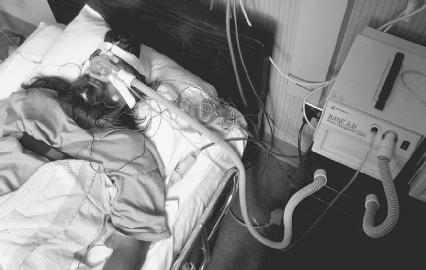Sleep Disorders - Treatment
The choice of treatment for a sleep disorder depends on the cause of the disorder, if it is known. For example, some people develop insomnia because

they have become depressed. The solution to this problem is not to treat the insomnia, but to treat the depression (see depression entry). The patient may be given antidepressants or counseling to improve his or her emotional outlook. If this treatment is successful, the insomnia usually disappears on its own.
In many cases, however, the sleep disorder itself may be treated directly. The five forms of treatment that can be used are medications, psychotherapy, sleep education, lifestyle changes, and surgery.
Medications
One might expect that insomnia should be treated with a sedative (a substance that helps a person relax and fall asleep). But sedatives provide only temporary relief from insomnia. They do not cure the underlying cause for the disorder. In addition, some sedatives may be habit-forming or may interact with other drugs to cause serious medical problems.
Stimulants (substances that cause a person to feel more energetic or awake) are often effective in treating narcolepsy. The drug known as clonazepam is used to treat restless legs syndrome. Benzodiazepines are used for children with sleep terror disorder or sleepwalking because they help the child sleep more soundly.
Psychotherapy
Psychotherapy is used when sleep disorders are caused by emotional problems. Patients are helped to understand the nature of their problems and to find ways to solve or to live with those problems. To the extent this treatment is successful, the patient's sleep disorders may be relieved.
Sleep Education
Researchers now know a great deal about the sleep process. By learning about that process, and changing their behavior patterns, patients may overcome some forms of sleep disorder. Some general guidelines that can help people sleep better include the following:
- Wait until you are sleepy before going to bed.
- Avoid using the bedroom for work, reading, or watching television.
- Get up at the same time every morning, no matter how much or how little you have slept.
- Get at least some physical exercise every day.
- Avoid smoking and avoid drinking liquids that contain caffeine.
- Limit fluid intake after dinner.
- Learn to meditate or practice relaxation techniques.
- Do not stay in bed if you can't fall asleep. Get up and listen to relaxing music or read.
Lifestyle Changes
Some types of sleep disorders can be relieved by changing one's lifestyle. For example, people with sleep apnea should stop smoking if they smoke, avoid alcohol and drugs, and lose weight to improve the function of their airways. People who experience circadian rhythm sleep disorders should try to adjust their travel or work patterns to allow time to adjust to new day/night patterns. Children with nightmare disorder should not watch frightening movies or television programs.
Surgery
Surgery is the treatment of last resort for sleep apnea, perhaps the only type of sleep disorder that is life-threatening. Combined with other factors, such as obesity, it can cause death. In such cases, surgery may be required to open up the patient's airways and make breathing easier.
Alternative Treatment
Stress may be responsible for a number of forms of sleep disorder. Alternative treatments that teach people how to reduce stress in their lives can be very helpful. These treatments may include acupuncture, meditation, breathing exercises, yoga, and hypnotherapy. Homeopathic practitioners recommend a variety of substances to treat insomnia caused by various factors. They suggest Nux vomica for insomnia caused by alcohol or drugs, Ignatia for insomnia caused by grief, Arsenicum for insomnia caused by fear or anxiety, and Passiflora for insomnia related to mental stress.
Practitioners of Chinese medicine also have a range of herbs for the treatment of sleep disorder. The substance recommended depends on the particular type of disorder. For example, the magnetic mineral known as magnetite is recommended for insomnia caused by fear or anxiety.
Dietary changes may also help relieve some sleep disorders. Patients should avoid any food that contains caffeine or other stimulants. Such foods include coffee, tea, cola drinks, and chocolate. Some botanical remedies that may help a person relax and get a good night's sleep include valerian, passionflower, and skullcap.

Comment about this article, ask questions, or add new information about this topic: